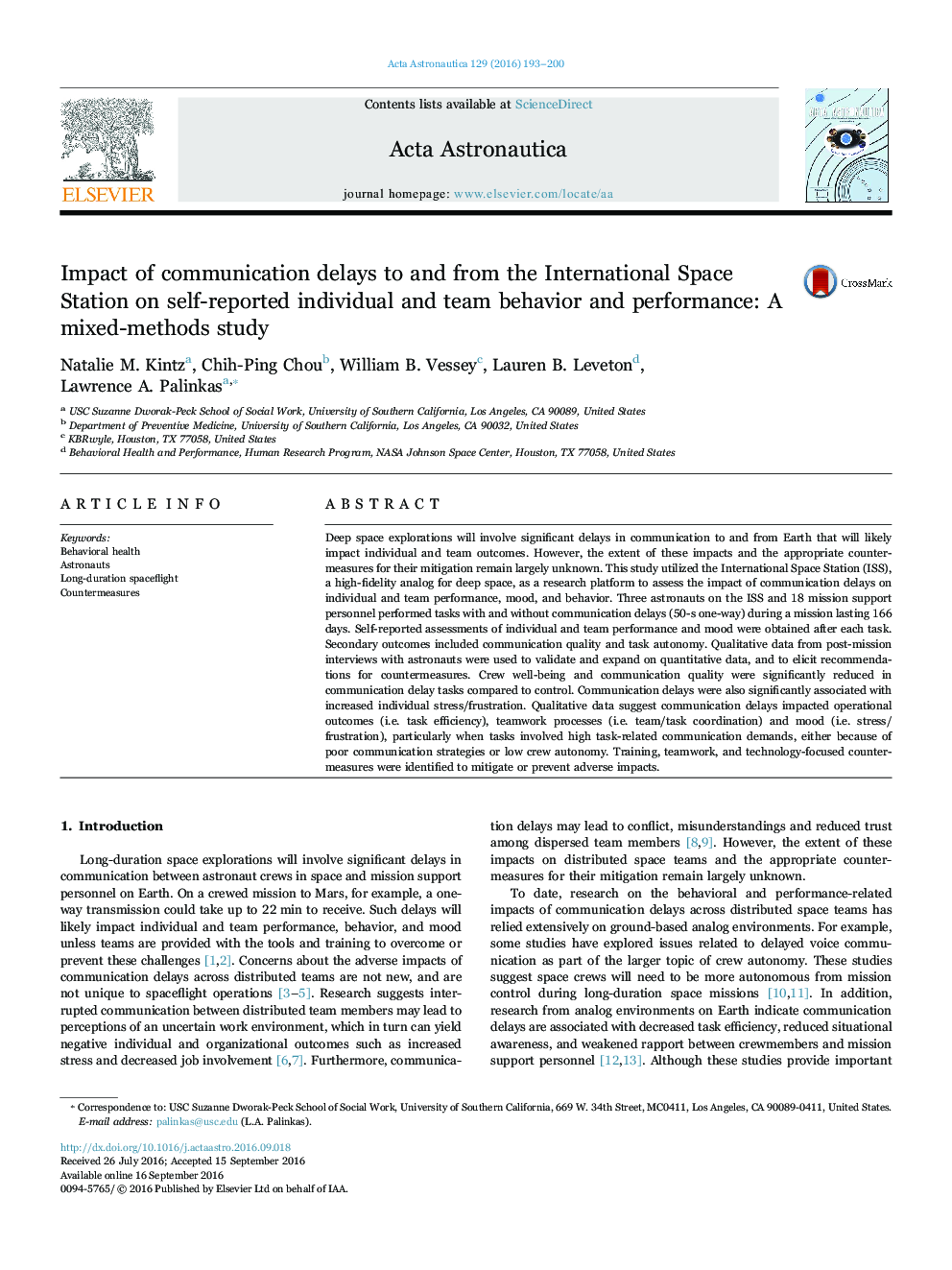| Article ID | Journal | Published Year | Pages | File Type |
|---|---|---|---|---|
| 8055911 | Acta Astronautica | 2016 | 8 Pages |
Abstract
Deep space explorations will involve significant delays in communication to and from Earth that will likely impact individual and team outcomes. However, the extent of these impacts and the appropriate countermeasures for their mitigation remain largely unknown. This study utilized the International Space Station (ISS), a high-fidelity analog for deep space, as a research platform to assess the impact of communication delays on individual and team performance, mood, and behavior. Three astronauts on the ISS and 18 mission support personnel performed tasks with and without communication delays (50-s one-way) during a mission lasting 166 days. Self-reported assessments of individual and team performance and mood were obtained after each task. Secondary outcomes included communication quality and task autonomy. Qualitative data from post-mission interviews with astronauts were used to validate and expand on quantitative data, and to elicit recommendations for countermeasures. Crew well-being and communication quality were significantly reduced in communication delay tasks compared to control. Communication delays were also significantly associated with increased individual stress/frustration. Qualitative data suggest communication delays impacted operational outcomes (i.e. task efficiency), teamwork processes (i.e. team/task coordination) and mood (i.e. stress/frustration), particularly when tasks involved high task-related communication demands, either because of poor communication strategies or low crew autonomy. Training, teamwork, and technology-focused countermeasures were identified to mitigate or prevent adverse impacts.
Related Topics
Physical Sciences and Engineering
Engineering
Aerospace Engineering
Authors
Natalie M. Kintz, Chih-Ping Chou, William B. Vessey, Lauren B. Leveton, Lawrence A. Palinkas,
